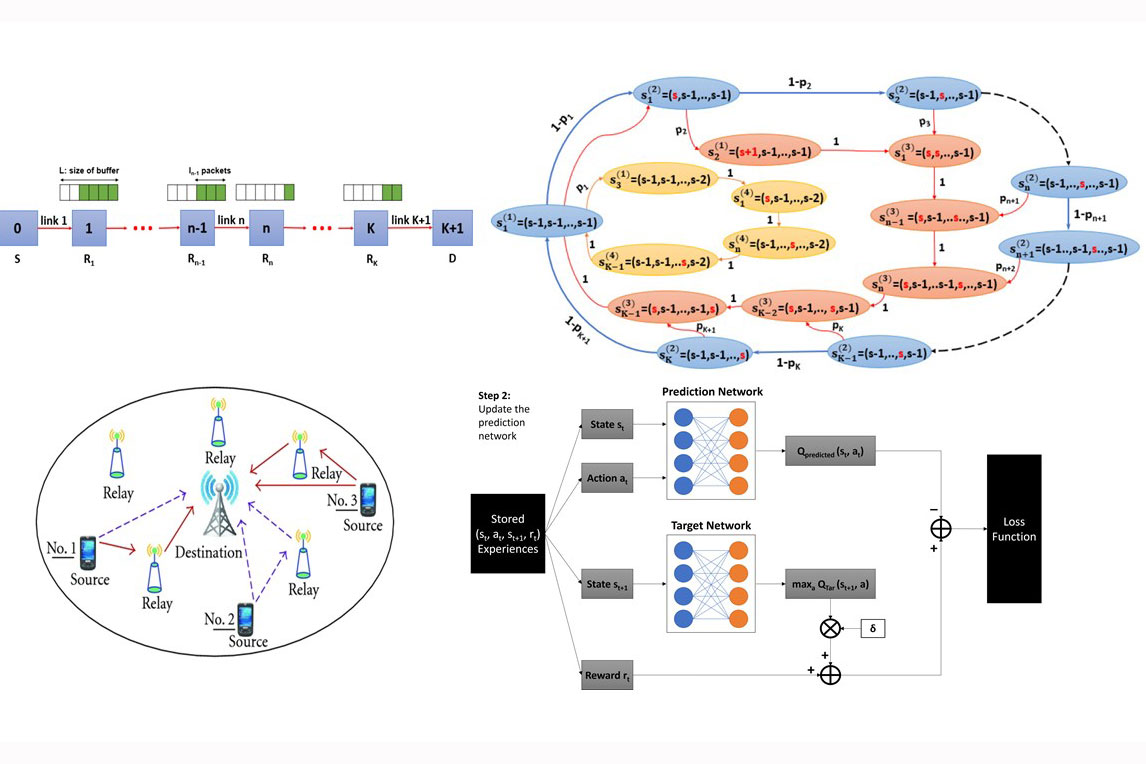Design and Analysis of Buffer-Aided Cooperative Networks using Deterministic and Reinforcement Learning Techniques
Project Details
- Student(s): Sawsan El-Zahr
- Advisor(s): Dr. Chadi Abou-Rjeily
- Department: Electrical & Computer
- Academic Year(s): 2021-2022
Abstract
Applications enabled by 5G technology resulted in an unforeseen increase in data traffic and data flows from any source to a destination are experiencing increased outages, delays, and drop-outs. Cooperative communication is one way to cope with this problem by integrating relays into systems to help a given source to communicate with its destination efficiently. Relays enable multiple shorter paths of better quality and equipping relays with buffers will further increase the degrees of freedom and allow for the mitigation of the fading effects. On the other hand, these benefits come at the expense of added complexity to the system. The problem of relay selection is a challenging task that can account for multiple parameters such as: the channel state information, the buffer states, and the positions of relays. In this thesis, we address this problem in two ways: deterministic and learning-based techniques. Multi-hop systems with buffer-aided half-duplex relays are considered.
First, we propose a new relaying strategy that is dynamic and can achieve multiple levels of trade-off between the average packet delay and the outage probability. The system is analyzed in a Markov Chain framework and all theoretical results are checked for accuracy with simulation curves. Asymptotic analysis is the key approach to derive closed-form expressions solely dependent on the adjustable parameters of the system. We could prove the superiority of this scheme compared with other benchmark schemes from the literature. Then, further relaying strategies are devised and compared. Additional performance levels are achieved to fit in different applications requirements. Next, for more complex setups, deterministic analysis becomes cumbersome, thus reinforcement learning techniques are used to efficiently optimize the performance. A deep RL agent is trained with a joint reward until it converges to an optimum performance. We demonstrate the efficiency of this approach to further increase the throughput of cooperative systems under different interference and design constraints.
Publications:
- Chadi Abou-Rjeily and Sawsan El-Zahr, “Deep Reinforcement Learning Based Relaying for Buffer-Aided Cooperative Communications”, ELSEVIER Physical Communication, vol. 59, August 2023.
- Sawsan El-Zahr and Chadi Abou-Rjeily, “Relaying Strategies and Asymptotic Analysis for Half-Duplex Buffer-Aided Serial Relaying Systems”, IEEE Communications Letters, vol. 26, no. 10, pp. 2327-2331, October 2022.
- Sawsan El-Zahr and Chadi Abou-Rjeily, “Buffer State Based Relay Selection for Half-Duplex Buffer-Aided Serial Relaying Systems”, IEEE Transactions on Communications, vol. 70, no. 6, pp. 3668-3681, June 2022.
Technical figure:
